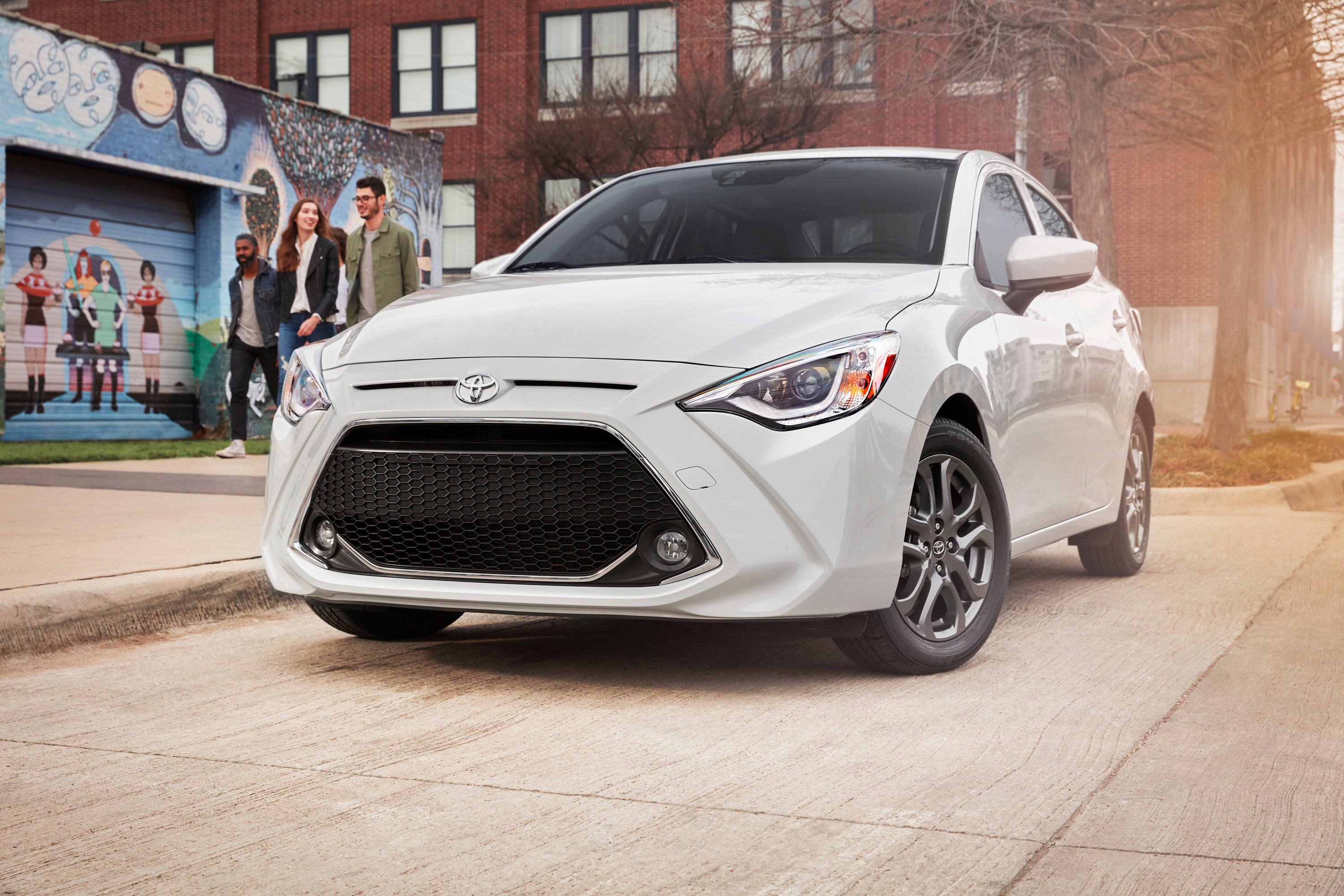Edmunds highlights small cars under $25k
With the rampant popularity of SUVs, small, cheap cars are riding off into the sunset

Small sedans and hatchbacks were once the entry point to new car ownership for many people. But consumers’ increasing preference for small SUVs has led to lower sales. As a consequence, a number of automakers have discontinued their small sedans and hatchbacks.
This year, the Honda Fit, Hyundai Elantra GT and Toyota Yaris became the latest victims of this trend. They join the Chevrolet Sonic and Ford Fiesta, two small sedan and hatchback combos that were discontinued last year.
Because automakers typically charge more for their SUVs, the dwindling selection of small cars has effectively raised the ground floor for new car pricing. For example, the next most affordable vehicle in Honda’s lineup after the Fit is the HR-V SUV. It’s mechanically related to the Fit yet costs nearly $5,000 more.
But consumers looking for an inexpensive set of wheels still have options. Edmunds’ experts have recommended five models that are either going away in 2020 or may not be around for much longer if current trends continue. The vehicles are sorted by price and most start under $20,000. All prices include the destination charge.
2020 NISSAN VERSA
Starting manufacturer’s suggested retail price: $15,755
EPA-estimated fuel economy: 35 mpg combined (32 city/40 highway) with an automatic transmission
The current Nissan Versa is a far better car than the one you might be picturing from years past. It has been recently redesigned and has a spacious trunk and plenty of safety and tech features at a reasonable price. The Versa sedan also has excellent fuel economy. On the downside, the Versa suffers from sluggish acceleration and a lack of interior storage for small items.
2020 HYUNDAI ACCENT
Starting MSRP: $16,270
EPA-estimated fuel economy: 36 mpg combined (33 city/41 highway) with an automatic transmission
The Hyundai Accent’s strengths are its high fuel economy, comfortable ride quality, quiet cabin and spacious interior. Hyundai also has the best warranty in the business. So if you like to own your cars a long time, there’s good peace of mind. Take heed, though: The Accent sedan is pretty bare-bones, and the USB port struggles to charge modern phones. And if you want advanced safety aids, those are only available in the pricier Limited trim.
2020 TOYOTA YARIS
Starting MSRP: $16,645 (sedan), $18,745 (hatchback)
EPA-estimated fuel economy: 35 mpg combined (32 city/40 highway) with automatic
While the Yaris is a Toyota by name, it’s truly a Mazda underneath both in underpinnings and spirit. As such, the Yaris, which is available as a sedan and a hatchback, has nimble handling and a well-appointed interior for the entry-level class. Edmunds rated the Yaris as its No. 1 extra-small sedan. Unfortunately, the Yaris trails its main rivals in terms of cargo space and availability of advanced safety features.
2020 HONDA FIT
Starting MSRP: $17,145
EPA-estimated fuel economy: 36 mpg combined (33 city/40 highway) with automatic
The Honda Fit’s exterior dimensions belie its interior space and cargo versatility. This hatchback is surprisingly roomy inside, and the configurable rear seats allow for excellent cargo capacity. It is very well equipped and comes with the latest safety features and updated infotainment system. It’s also pretty fuel-efficient. Cons are few but include a lack of rear-seat headroom for taller passengers.
2020 HYUNDAI ELANTRA GT
Starting MSRP: $21,645
EPA-estimated fuel economy: 28 mpg combined (25 city/32 highway) for 2.0-liter engine with automatic; 27 mpg combined (25 city/32 highway) for turbo 1.6-liter engine with automatic
Hyundai’s Elantra GT hatchback is one of the gems in this group. It is slightly larger than the other vehicles on our list, which makes it roomier on the inside for both people and cargo. The Elantra also comes packed with plenty of standard features and is actually fun to drive thanks to sharp handling and an available 201-horsepower turbocharged engine. The weak link for the Elantra GT is its lackluster fuel economy.
EDMUNDS SAYS: These small sedans and hatchbacks are inexpensive, fuel-efficient, easy to park and easy on the wallet. While many of these cars are not long for this world, don’t expect clearance prices since the margins on these vehicles are as small as the cars themselves. Research the market value to help determine what price you should pay.
Related links:
—2020 Nissan Versa review: https://edmu.in/3cw962c
—2020 Hyundai Accent review: https://edmu.in/361l3Ml
—2020 Toyota Yaris review: https://edmu.in/308iSme
—2020 Hyundai Elantra GT review: https://edmu.in/364ALGl
—2020 Honda Fit review: https://edmu.in/3j1U4nw
___
This story was provided to The Associated Press by the automotive website Edmunds. Rex Tokeshi-Torres is a vehicle testing technician at Edmunds. Twitter: @trackwrex.
Related links:
Bookmark popover
Removed from bookmarks